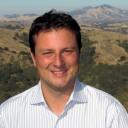The End of Slow Networks: It’s Time for a Redesign

Next generation high-performance RDMA-capable networks will require a fundamental rethinking of the design and architecture of modern distributed DBMSs. These systems are commonly designed and optimized under the assumption that the network is the bottleneck: the network is slow and “thin”, and thus needs to be avoided as much as possible. Yet this assumption no longer holds true. With InfiniBand FDR 4x, the bandwidth available to transfer data across network is in the same ballpark as the bandwidth of one memory channel, and it increases even further with the most recent EDR standard. Moreover, with the increasing advances of RDMA, the latency improves similarly fast. In this talk, I will first argue that the “old” distributed database design is not capable of taking full advantage of the network. Second, I propose an architectural redesigns for OLTP, OLAP and advanced analytical frameworks to take better advantage of the improved bandwidth, latency and RDMA capabilities. Finally, for each of the workload categories, I show that remarkable performance improvements can be achieved.
This joint meeting of the Boston Chapter of the GBC/ACM and IEEE Computer Society will be held in MIT Room 32-G449 (the Kiva conference room on the 4th floor of the Stata Center, building 32.
Up-to-date information about this and other talks is available online at http://www.gbcacm.org . You can sign up to receive updated status information about this talk and informational emails about future talks at our website.
Tim Kraska is an Assistant Professor in the Computer Science department at Brown University. Currently, his research focuses on Big Data management for machine-learning and hybrid human/machine database systems. Before joining Brown, Tim Kraska spent 2 years as a PostDoc in the AMPLab at UC Berkeley after receiving his PhD from ETH Zurich, where he worked on transaction management and stream processing. He was awarded a NSF Career Award (2015), an AFOSR Young Investigator award (2015), a Swiss National Science Foundation Prospective Researcher Fellowship (2010), a DAAD Scholarship (2006), a University of Sydney Master of Information Technology Scholarship for outstanding achievement (2005), the University of Sydney Siemens Prize (2005), a VLDB best demo award (2011) and an ICDE best paper award (2013).
